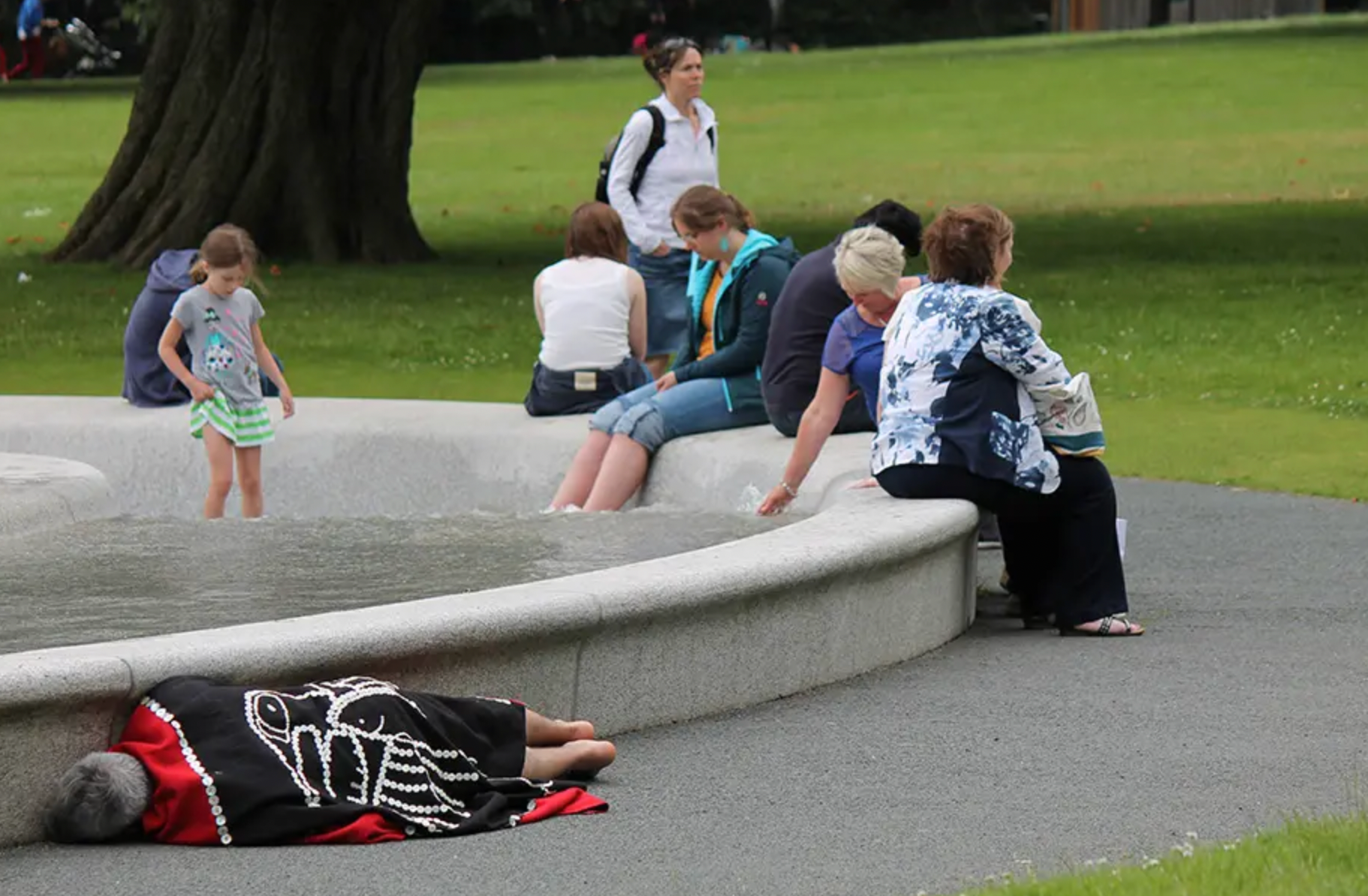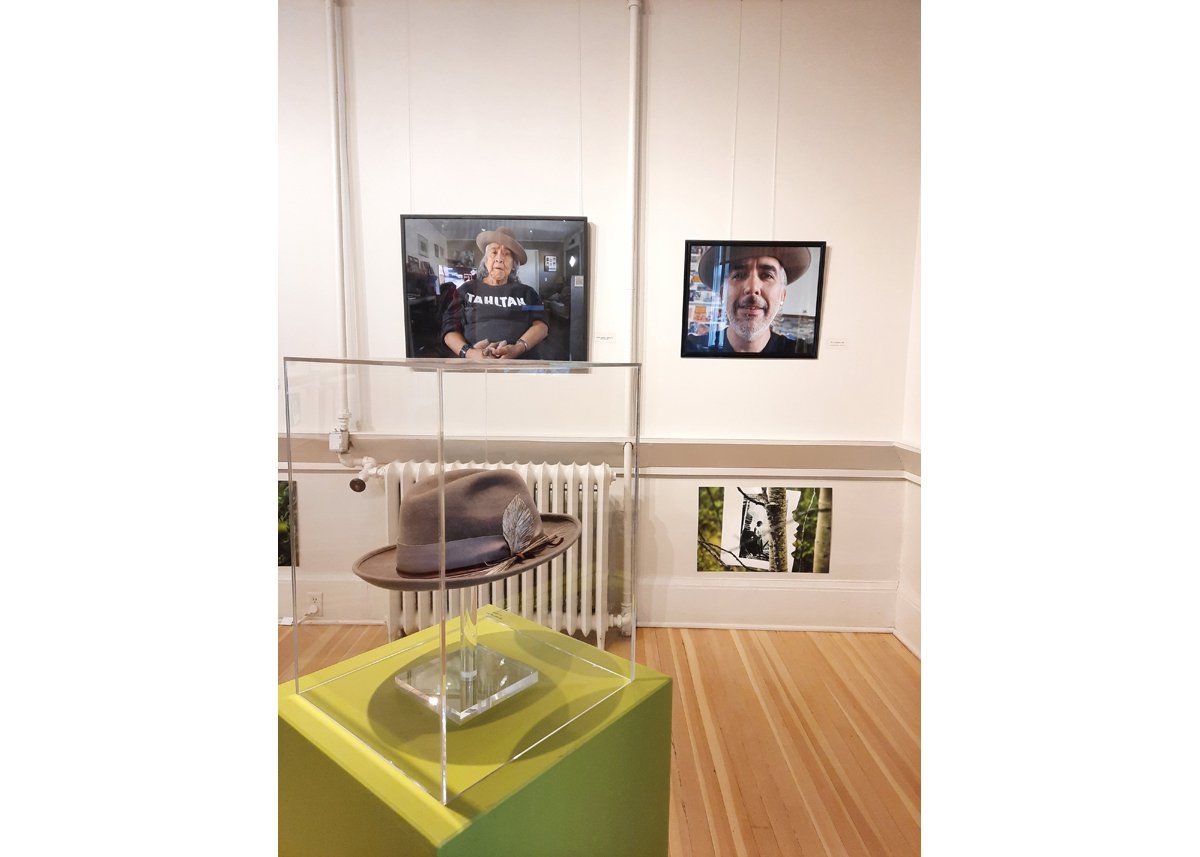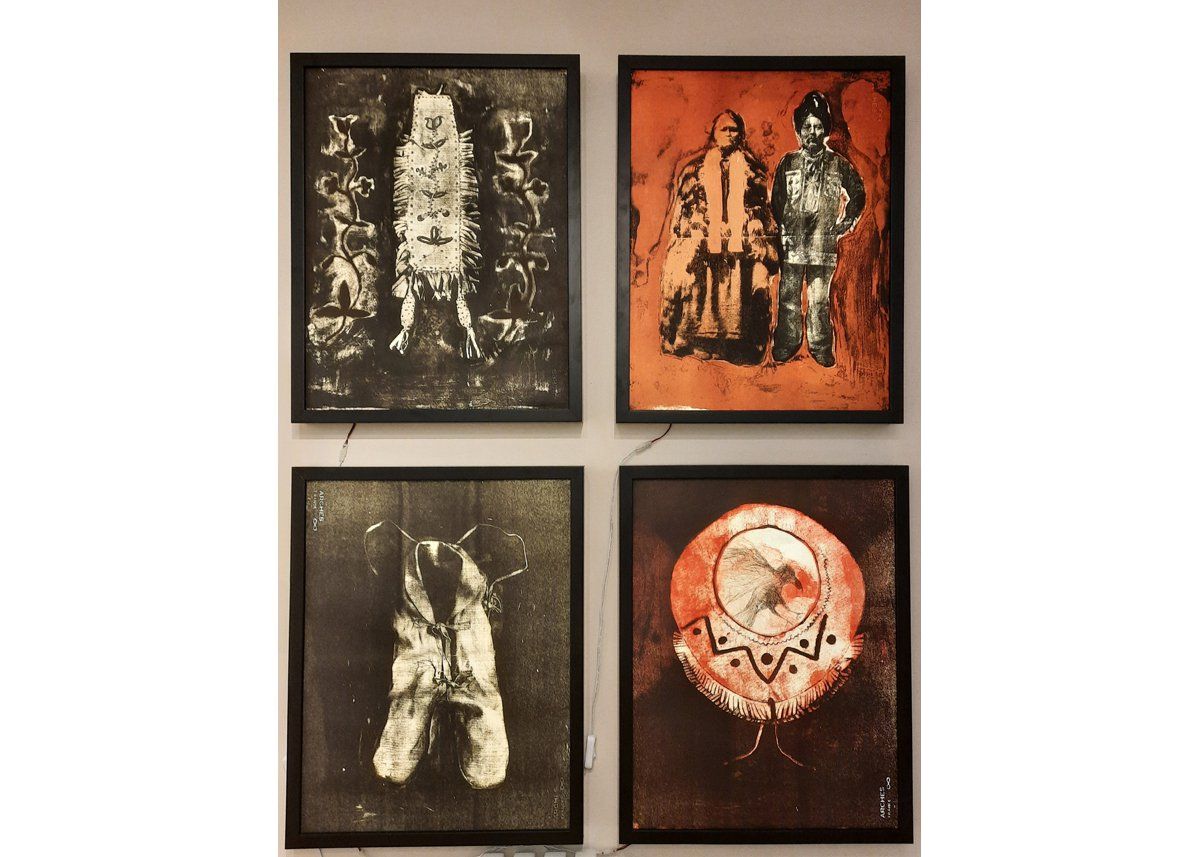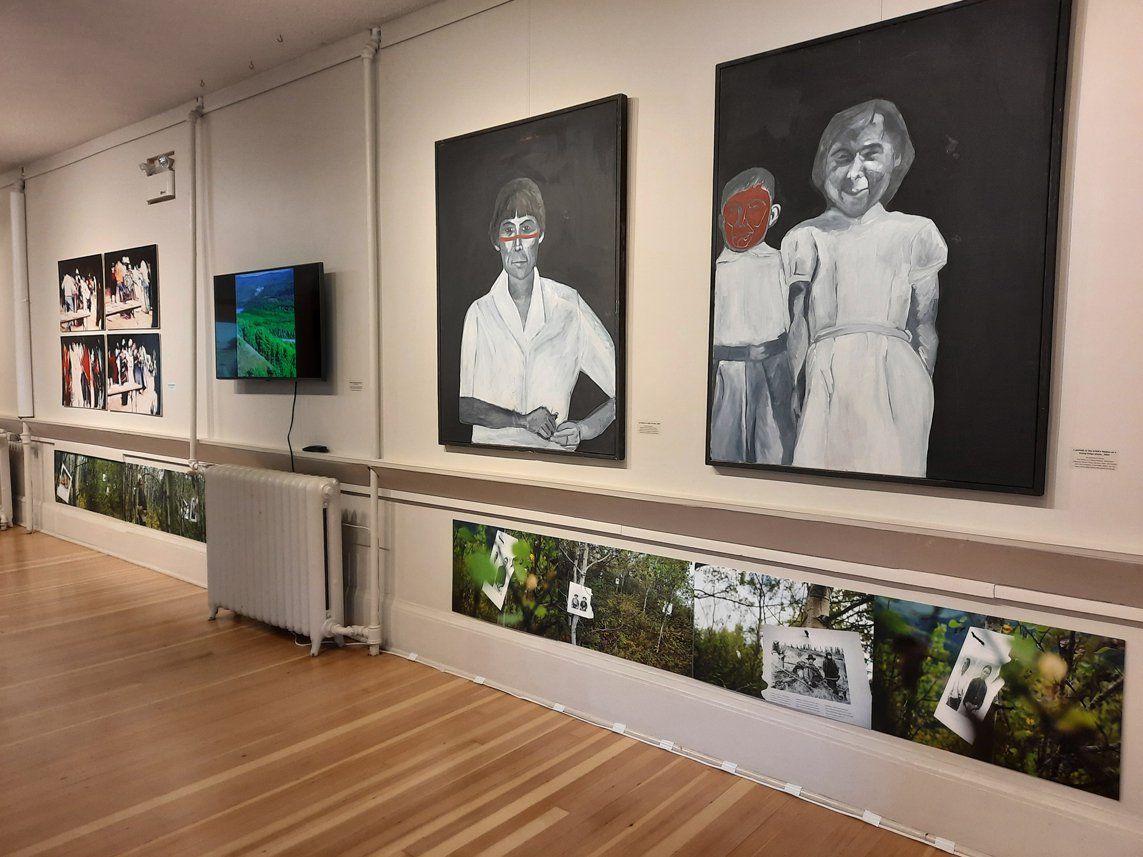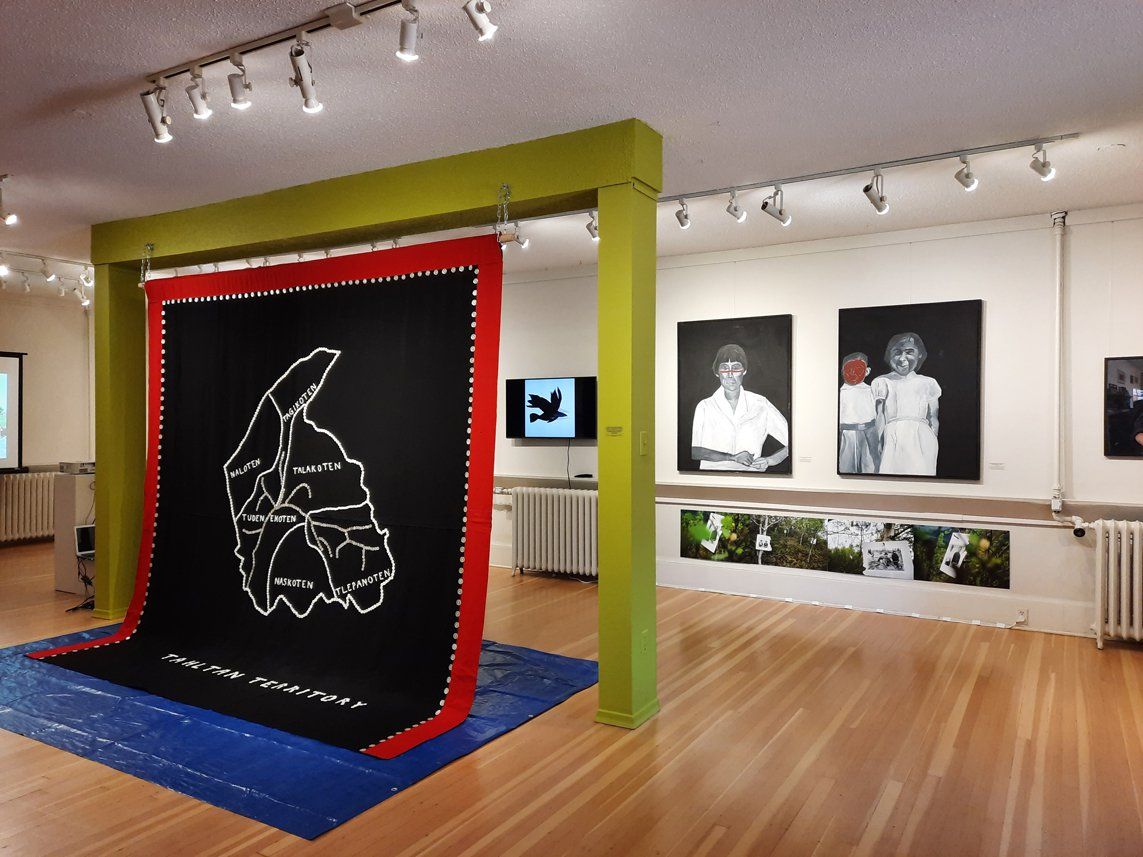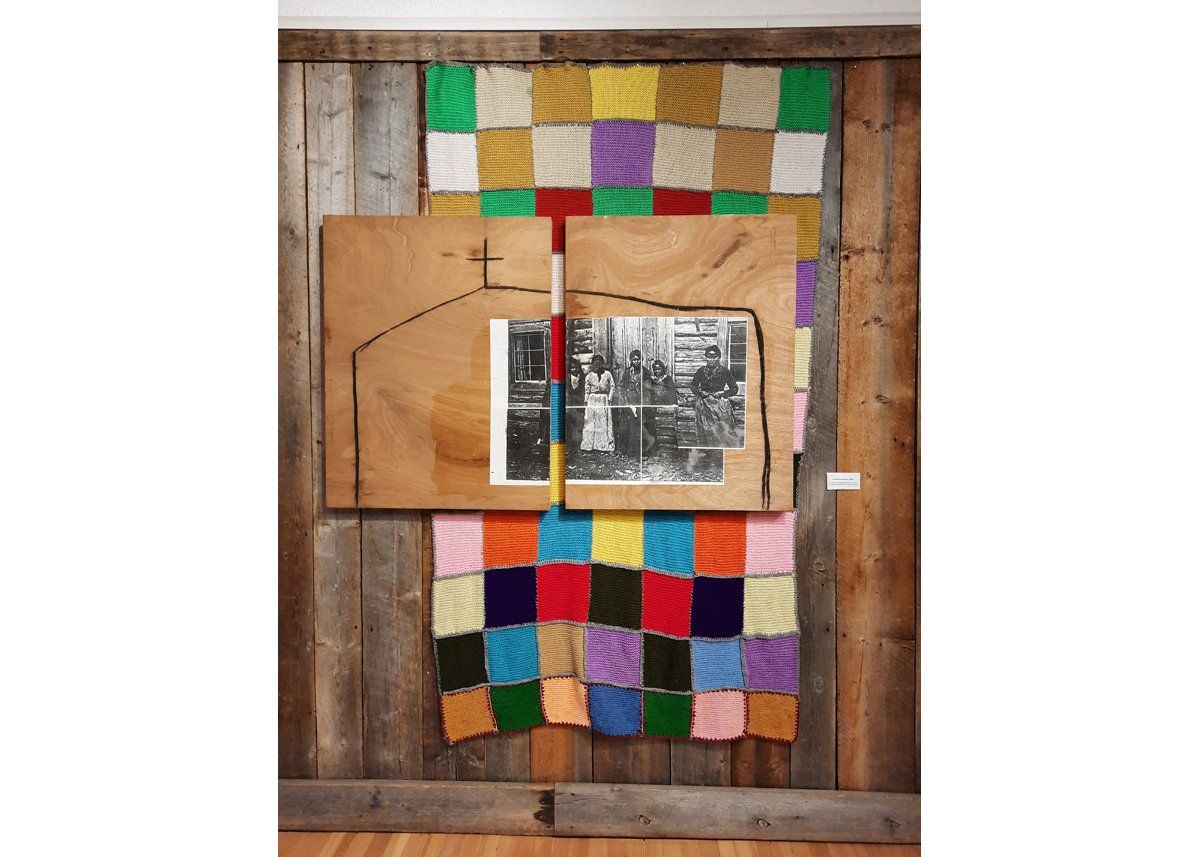Exactly. I also wanted to pursue the exhibition because I wanted to show that even with Alzheimer’s you are still making knowledge, you’re still making cultural knowledge, and you are still practicing. And that was important to me because, as well as Western, White culture being very stand-off-ish with this disease, our community is also. So, my mom wrote a song: I made all these pillows with our faces on them, because I thought she’ll wake up and see people that love her and she’ll feel loved. One day, we were sitting there watching Ghostbusters together, and she holds up the pillow by me while I’m sitting by her, and she sings a song: [sings] “Peter, Peter, I miss you already, I wish you were coming come, I wish you were coming home”. And I thought… that’s a beautiful song. So, part of the exhibition was a way for me to get that song moved into our Tahltan language, and then offer the song to the community. It’s also important to say that this song – I mean, I’m only one Tahltan person of, like, less than five thousand of us – so I think, and in my limited scope of Tahltan world, this is the first new song written by somebody. And she has Alzheimer’s, which means it’s the first song ever in our language written by somebody who has Alzheimer’s. I worked with my cousin, my sister-cousin, and her partner En Galena Ło'oks, to translate the song into Tahltan. [sings] “Edzūdza k’at enaga esdī’ iya’e, Dūli kime tlāndīndā”. We did that here. The performance was called She carried us to the territory. Yeah. All that stuff there in the exhibition room supports to get people to the right kind of energy to have that performance. And then, also, my mother is in the care home. And I need those folks, the care people there, to love her as much as I love her. And this was kind of a sneaky way to do that. They could see the evidence of her work. I gave five artist talks, community talks, and in every single one of them I said “this is only my part of the story – she has helped numerous people in the same way and if we had the chance, all of us, to reflect on how Edzūdzah has helps us, we would fill up this entire town”. I also did radio interviews, which was really great to because I need them, really need them, to think about this. How do you overcome systemic racism in an institution like a care home? Maybe you can’t. But if you get White, racist folks’ egos involved, like; your ego is more important than racism! You know?


